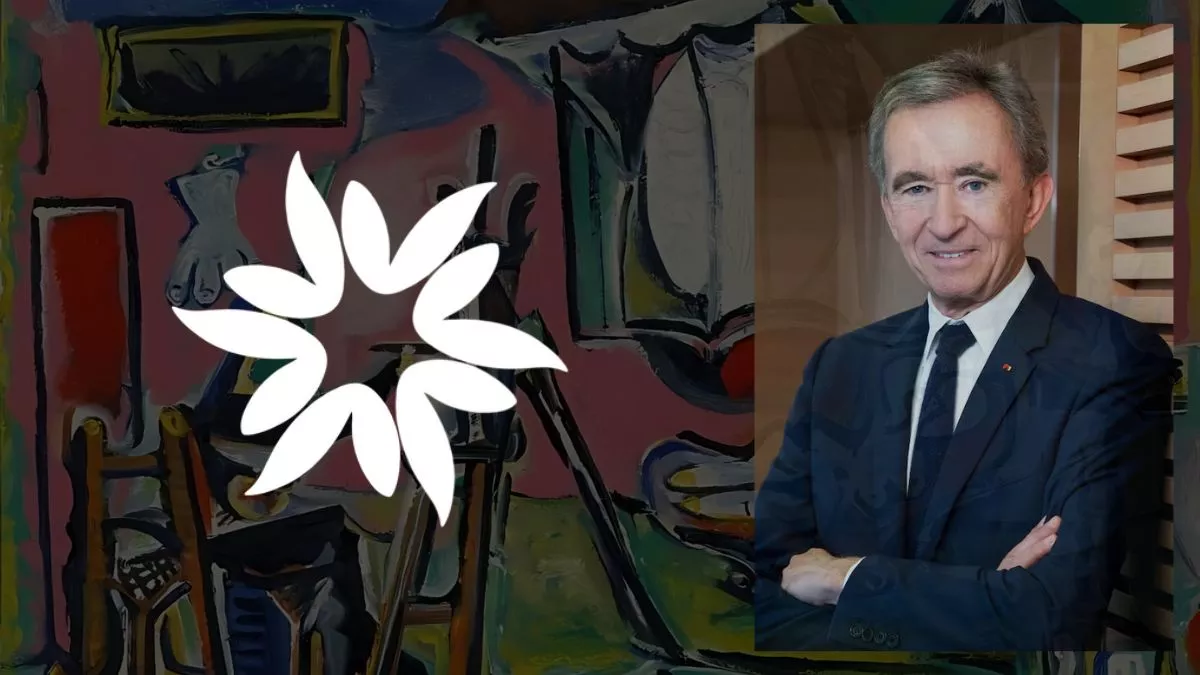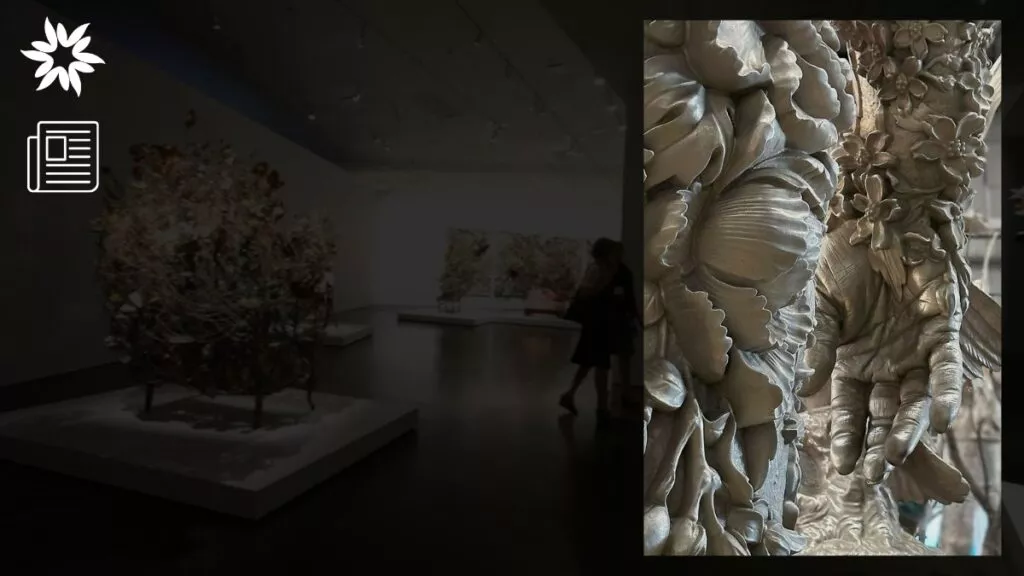Ever wonder what it’s like to own a Picasso or a Van Gogh? The world’s most famous and wealthiest art collectors do just that – and more!
From billionaires who’ve spent millions on iconic expensive paintings to those who’ve built entire museums to share their passion, these collectors are the real power players in the art world.
Let’s look at some of the richest and most famous art collectors who shape how we see and value art today.
Key Takeaways
- The world's top art collectors are not only billionaires but also influential figures who shape the art market and cultural institutions.
- These collectors possess vast collections, including masterpieces from iconic artists like Picasso, Van Gogh, and Rodin.
- These collectors significantly contribute to global art appreciation and cultural preservation through their collections and philanthropy.
1. Bernard Arnault
Bernard Arnault, the world’s richest person and CEO of LVMH, has made a huge impact not only in business but also in the art world, where his passion really shines.
His art collection combines modern and contemporary pieces, including works by famous artists like Pablo Picasso, Yves Klein, Andy Warhol, Jean-Michel Basquiat, and Gerhard Richter.
One standout piece he owns and is particularly proud of is “Le peintre et son modèle” by Picasso.
Arnault is the main person behind the Fondation Louis Vuitton, a Paris museum designed by Frank Gehry.
Opened in 2014, this museum holds much of his collection and features temporary shows that often include multidisciplinary art.
The Fondation is a major cultural spot, with 11 galleries across four levels. It shows Arnault’s private collection and unique installations by artists like Olafur Eliasson and Janet Cardiff.
It’s safe to say that Fondation is a place for cultural exchange and new artistic ideas, especially in contemporary art.
2. Steven Cohen
Steven Cohen, a billionaire hedge fund manager, is a major art collector who prefers top-tier, high-value art.
Steven Cohen’s art collection is famous for having some of the priciest and most iconic pieces ever sold. For example, he bought Jackson Pollock’s “No. 5, 1948” for $140 million and Picasso’s “Le Rêve” for $155 million.
Cohen considers art a personal hobby, but more importantly, he sees it as a way to give back to the public.
Through the Steven & Alexandra Cohen Foundation, he supports causes like health, education, and the arts. The foundation often lends pieces from his collection to museums so more people can see them.
3. David Geffen
David Geffen, a big name in the entertainment world, has put together one of the most valuable art collections, worth over $2 billion.
His collection features top-notch pieces by artists like Jasper Johns, Jackson Pollock, and Willem de Kooning.
Geffen is especially famous for his smart buying and selling of art. In 2006, he made headlines when he sold two Pollocks and a de Kooning for a whopping $500 million, shocking the art community.
Geffen is also known for his generosity. He has made big donations to the Los Angeles County Museum of Art (LACMA) and supported many other cultural and educational organizations.
Widely regarded as one of the best in the world, Geffen’s collection focuses heavily on post-war American art.
4. Sheikha Mayassa Al-Thani
Sheikha Mayassa Al-Thani of Qatar is known as one of the most powerful people in global art.
As the head of Qatar Museums, she manages a budget that is said to be over $1 billion each year. She uses this budget to buy artwork from some of the most famous artists in history.
Some of her major purchases include Paul Gauguin’s “When Will You Marry?” for $300 million and Paul Cézanne’s “The Card Players” for $250 million.
Mayassa’s collection also includes modern pieces by artists like Damien Hirst, Jeff Koons, and Mark Rothko.
Besides collecting, Sheikha Mayassa plays a key role in shaping Qatar’s cultural scene. She’s been a driving force behind major cultural spots like the Museum of Islamic Art and the National Museum of Qatar, designed by well-known architects like I. M. Pei and Jean Nouvel.
She aims to connect different cultures and make Qatar a center for cultural exchange. However, her role isn’t without controversy, especially regarding how the country treats local artists and cultural workers.
Quick Note: Have you explored the stories behind the 10 famous masterpieces that are still missing? You should; we think you’ll love them.
5. Eli Broad
The late Eli Broad, often called the “Lorenzo de’ Medici of Los Angeles,” was a major art collector and philanthropist.
He and his wife, Edythe, built one of the world’s most important collections of post-war and contemporary art.
Their collection, known as The Broad Collection, includes over 2,000 works by nearly 200 artists, featuring major names like Jean-Michel Basquiat, Jeff Koons, Cindy Sherman, and Andy Warhol.
In 2015, the Broads opened The Broad, a contemporary art museum in Los Angeles that showcases their collections and is dedicated to making art accessible to everyone.
Now, the museum is a cultural landmark in the city, reinforcing Eli Broad’s legacy as a major supporter of the arts.
6. Charles Saatchi
Charles Saatchi, a British advertising giant, has greatly impacted the contemporary art world, especially by promoting the Young British Artists (YBAs) in the 1990s.
Saatchi’s collection is famous for its bold and often controversial pieces, including works by Damien Hirst, Tracey Emin, and Chris Ofili.
His 1997 “Sensation” exhibition, featuring many of these artists, was a big moment in contemporary art and helped launch the YBAs to international fame.
Saatchi’s influence goes beyond collecting; through the Saatchi Gallery in London, he has provided a stage for emerging artists, shaping both public taste and the art market.
Not to mention, his collection has been key in defining contemporary British art today, though his approach has also been criticized for making art too commercial.
7. Leon Black
Leon Black, the billionaire who started Apollo Global Management, is well-known in art for having a vast and diverse art collection.
In 2012, he made news when he bought Edvard Munch’s “The Scream” for an incredible $120 million, a record for a painting sold at auction at the time.
His collection is unique, that’s for sure – it includes pieces from many different historical periods, including works by old masters and contemporary artists.
Besides “The Scream,” Black’s collection has major works by artists like Pablo Picasso, Raphael, and other European masters.
Meanwhile, he’s recognized for supporting cultural institutions. Black has been on the boards of several important museums, including the Museum of Modern Art (MoMA) in New York, where he was the chairman.
What’s more, he’s deeply involved in the operation and growth of art institutions, playing a crucial role in shaping their collections and expanding what they offer to the public.
However, Black’s art dealings have faced criticism due to his ties with Jeffrey Epstein, which led to more scrutiny of his financial and art transactions.
8. Philip Niarchos
Philip Niarchos, who inherited a massive Greek shipping fortune, manages one of the world’s most valuable private art collections.
His collection is especially famous for its post-impressionist and modern art, including masterpieces like Vincent van Gogh’s “Self-Portrait with Bandaged Ear” and Pablo Picasso’s “Yo Picasso.”
The Niarchos collection is estimated to be worth over $2 billion, and Philip continues the legacy started by his father, Stavros Niarchos, who first assembled it.
Philip has added contemporary art pieces to the collection, including works by Andy Warhol and Jean-Michel Basquiat.
Perhaps Niarchos’ most notable purchase is Picasso’s “Dora Maar au Chat,” which he bought for $95.2 million in 2006.
Even though his collection is very high-profile, Niarchos prefers to keep a low profile. Many of his art purchases are quietly handled by professional curators.
Niarchos also supports the arts – he’s a trustee at the Museum of Modern Art in New York and an International Council Member at the Tate Gallery in London.
9. Roman Abramovich
Roman Abramovich, the Russian billionaire most famous for owning Chelsea Football Club, also has one of the world’s most valuable private art collections, worth almost $1 billion.
Did you know his collection includes well-known pieces by artists like Lucian Freud, Francis Bacon, and Pablo Picasso? Notably, in 2008, he bought Freud’s “Benefits Supervisor Sleeping” for $33.6 million and Bacon’s “Triptych” for $86 million.
Abramovich’s collection is vast and diverse, with over 350 pieces by Russian, European, and American masters. This includes notable works like Kazimir Malevich’s “Suprematist Composition” and Cy Twombly’s “Untitled Roma.”
However, in early 2022, just before sanctions were placed on him due to the Russian invasion of Ukraine, Abramovich transferred most of his art collection’s ownership to his ex-wife, Dasha Zhukova, to avoid having his assets frozen under international sanctions.
10. Carlos Slim
Carlos Slim, the Mexican billionaire and the wealthiest man in Latin America, owns a remarkable and varied art collection, primarily housed in the Museo Soumaya in Mexico City.
Among his impressive collection, you’ll find European masters like El Greco and Rodin and celebrated Mexican artists such as Diego Rivera and Rufino Tamayo.
His museum, Museo Soumaya, named after Slim’s late wife, Soumaya Domit, displays over 66,000 pieces of pre-Hispanic, colonial, and modern art.
One of the standout features of Slim’s collection is the extensive number of works by Auguste Rodin – one of the largest collections of Rodin’s art outside of France.
The Museo Soumaya is perhaps the most visited museum in Mexico, which reflects Slim’s dedication to making art accessible to the public and preserving cultural heritage.
Aside from being a symbol of wealth, Slim’s collection shows his dedication to his country’s cultural development.
Ready to Explore More About the World’s Top Art Collectors?
So, now you’ve got a peek into the lives of some of the most influential art collectors.
These billionaire art collectors are shaping the art world, preserving culture, and even creating spaces where we can all enjoy some of the most iconic works of art ever made.
If you’re curious to learn more about these collectors, their collections, and the stories behind the masterpieces they own, explore their museums, check out exhibitions, or just stay tuned to see what they add to their collections next.
The art world is full of surprises, and these collectors are at the heart of it all. Keep exploring, and who knows – you might find a new favorite artist or artwork along the way!








